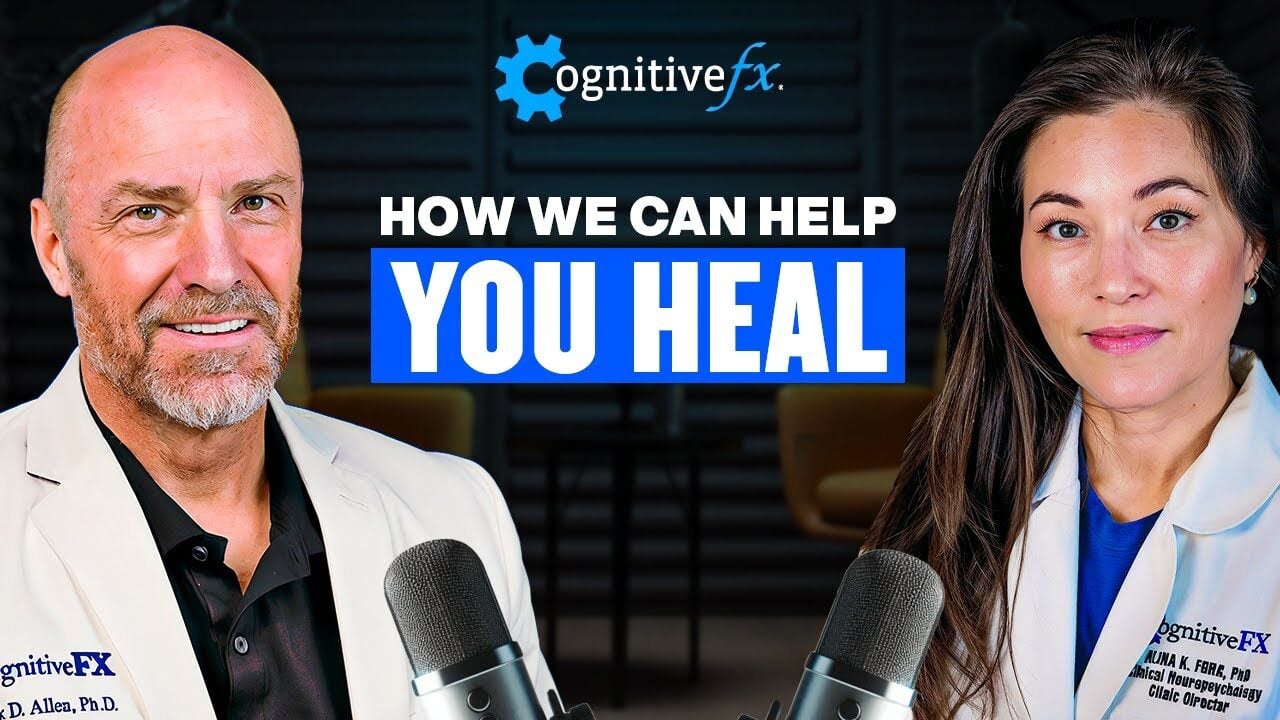It's time to receive the right care.
Answer 16 questions to tell us about your injury and see if you would be a good fit. Or schedule a free consultation and find out if our brain scan-guided multidisciplinary treatment program is right for you.
Pre-Treatment Brain FunctionPost-Treatment
Pretreatment vs
Post Treatment
Patient Severity Index Score (SIS)
- 0-0.8 (Healthy Brain)
- 0.8-1.5 (Borderline)
- 1.5+ (Injured Brain)
CognitiveFX patients see global symptoms reduced by 62.24%
even if they haven't seen a response from other treatments
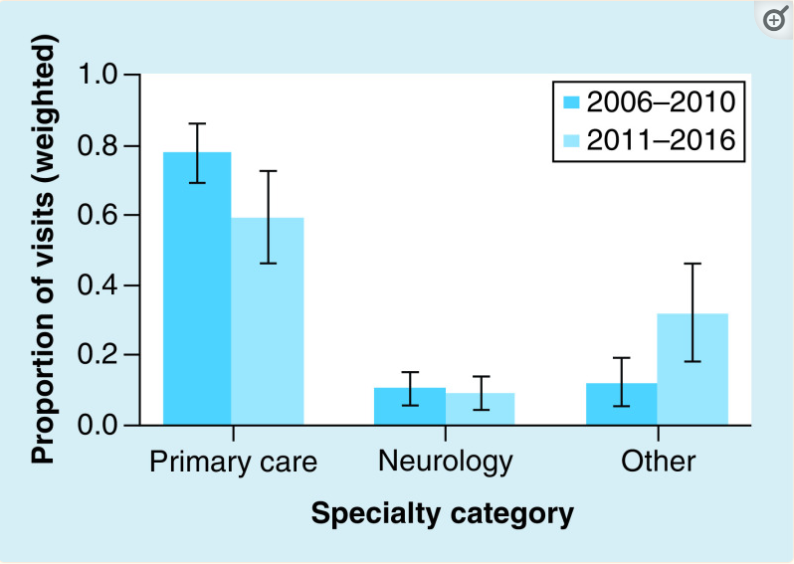
Failed Multiple Treatments
A majority of our patients have seen 3 other specialists for their injury.
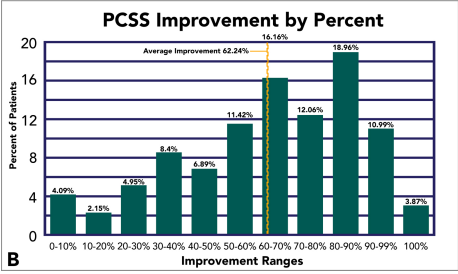
Average Symptom Reduction 62.24%
The measure of PCSS improves by 62.24% for patients doing one-week of treatment.
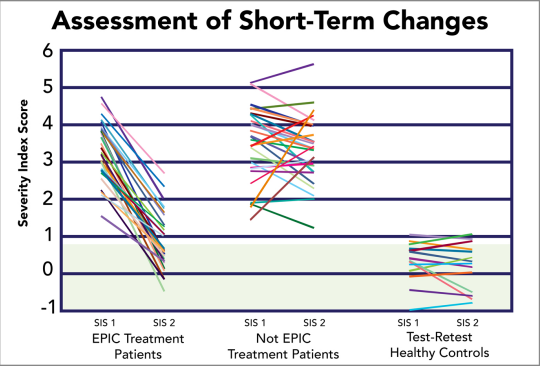
Treatment vs nontreatment
Significant improvement in brain function and SIS measures with treatment.
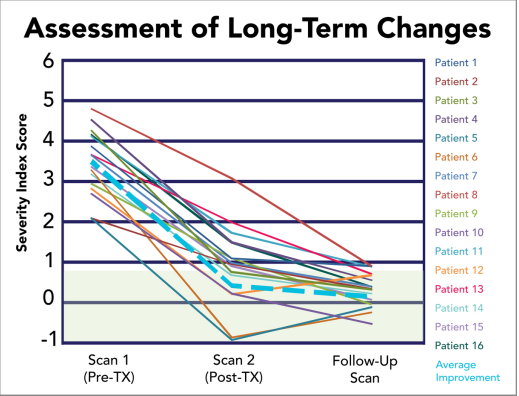
Durable Recovery
Patient recovery and improvement remained after a follow-up scan one year post-treatment.
Frequently Asked Questions
How confident should I be that I will get better if I come for treatment?

Third-party and our internal tracking show that roughly 75% of patients will get significantly better with treatment. The remainder will see some improvement in symptoms but not return to pre-injury levels. Between 5% and 7% of patients will see no improvement with treatment or a temporary regression of symptoms. We are improving at identifying what types of brain injuries don't respond to our treatment.
How does the fMRI allow you to customize my treatment?
All patients begin with a fMRI of their brain before we begin treatment. This allows us to look at how your brain in activating when it is doing standard tasks. We compare that with a database of healthy brains. From the scan, we are able to determine what areas of the brain are not working as they should. We can customize the Prepare, Activate, Recovery protocol to meet your needs.

This represents a standard normal curve. This patient has activations two standard deviations higher than normal, which can lead to brain fog, fatigue, and headaches. Parts of their brain are consuming far more resources than normal to compensate for an injury.
How is Cognitive FX different than other clinics?
Instead of conducting interviews with the patient about their symptoms, we take a more accurate approach and scan the brain, looking for differences between an injured brain and a normal brain.
Symptoms don't match up with the area of the brain that needs treatment. Hyperactivation across brain regions results in fatigue and headaches even though it may just be a few over active regions that are causing all the symptoms. On the other hand hypoactivation (low brain activation) can result in brain fog, taking longer to think etc. Without knowing what areas are impaired, it is hard to know where to focus treatment.
Secondly, during the week, we promote brain plasticity and stress the brain so it will try to remodel the neural pathways it had preinjury. To do that effectively, you can't have one or two appointments a week. The brain typically won't change 6 months after an injury without some serious work.

What is treatment like and what kinds of treatment will I get?
Treatment will last 1 or 2 weeks depending on your injury severity and to a lesser degree age. Treatment is between 6-9 hours every day for the week with a shorter day on Friday to accommodate an exit scan. We follow a Prepare, Activate and Recovery strategy for treatment. The types of therapy you could receive are: physical therapy, occupational therapy, speech therapy, cognitive therapy, vision therapy, massage, vestibular therapy, brain wave entrainment, CO2 therapy, dynavision, NSI, Righteye, TOMAR, REAX Board, HIIT, psychology.
The activation portion of the treatment is the most individualized. The Prepare phase is based on increasing the blood flow and creating neurochemicals (BDNF, dopamine, acetylcholine, etc.) that help with brain plasticity and neurogenesis.

How do I know if Cognitive FX is right for me and my injury?
If you have been dealing with symptoms for over 9 months, the research shows that without intervention, the likelihood of recovery is very low. The data shown above shows that 77% returned to normal SCAT 5 testing results. The average patient was over 4 years post-injury, so there is hope.
If you are longer than 6 months post-injury and symptoms aren't improving or getting worse, you are an ideal patient. If you have had multiple concussions and have severe symptoms and you are less than 6 months, you are also an ideal treatment candidate. If you have only had one concussion and are less than 6 months continue with your local treatment or see if you will recover. If, after 6-9 months, you haven't improved, reach out to us.

Will I be able to do treatment with my symptoms?
We have treated thousands of patients that have post-concussion syndrome or a mild TBI. We have lots of techniques that will help lessen any flair-up in symptoms. We also schedule recovery sessions in your schedule so you can rest and prepare for the next activation window.
Symptoms Patients Report Before Treatment
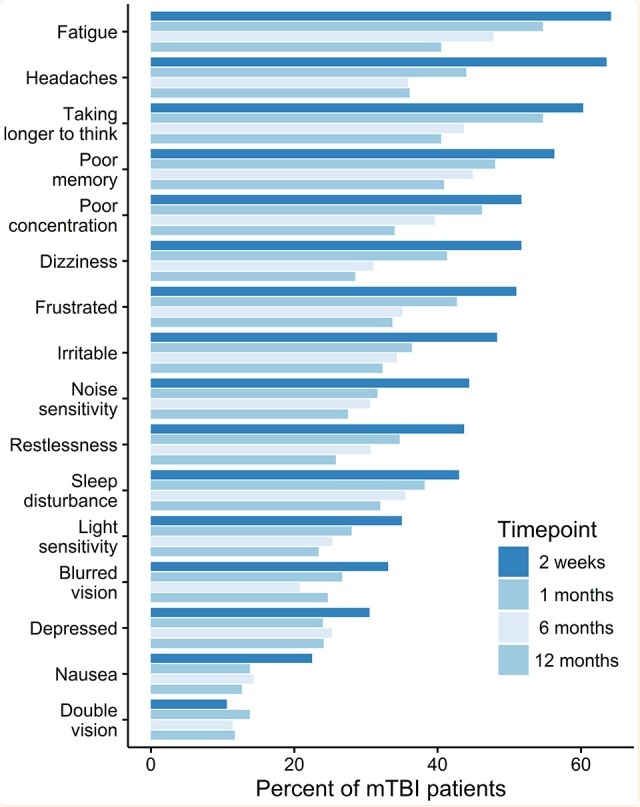
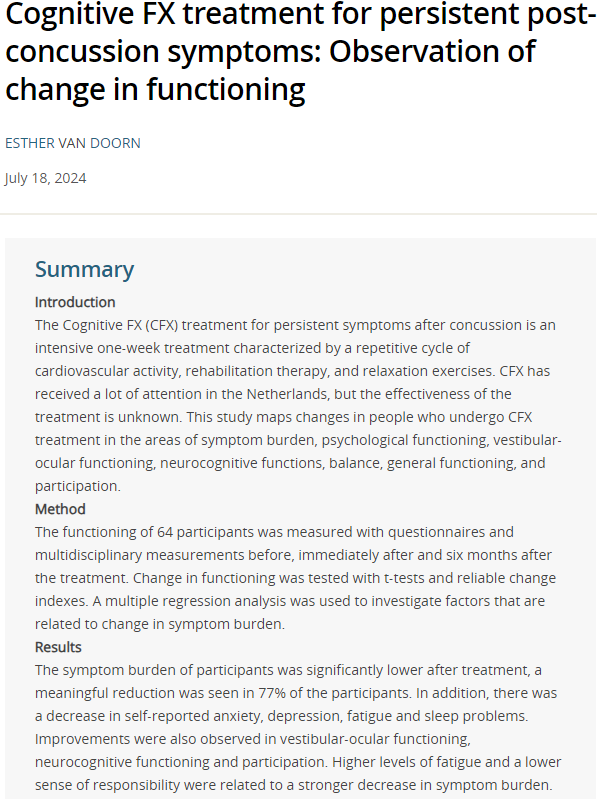
We have all the tools for your recovery. With 14 different doctors and specialists, you get the treatment you need in one place. 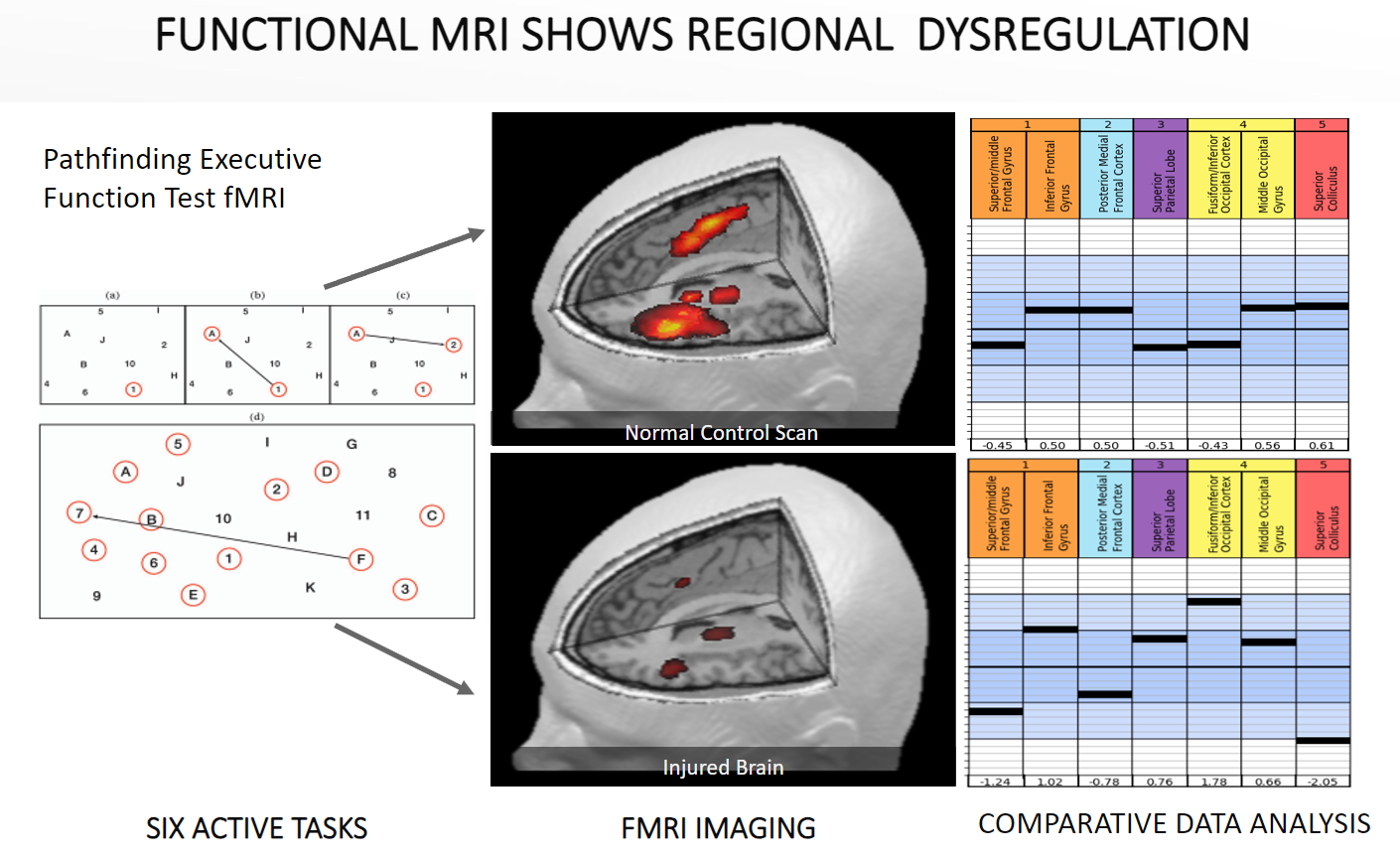
Patient Results Independent Study
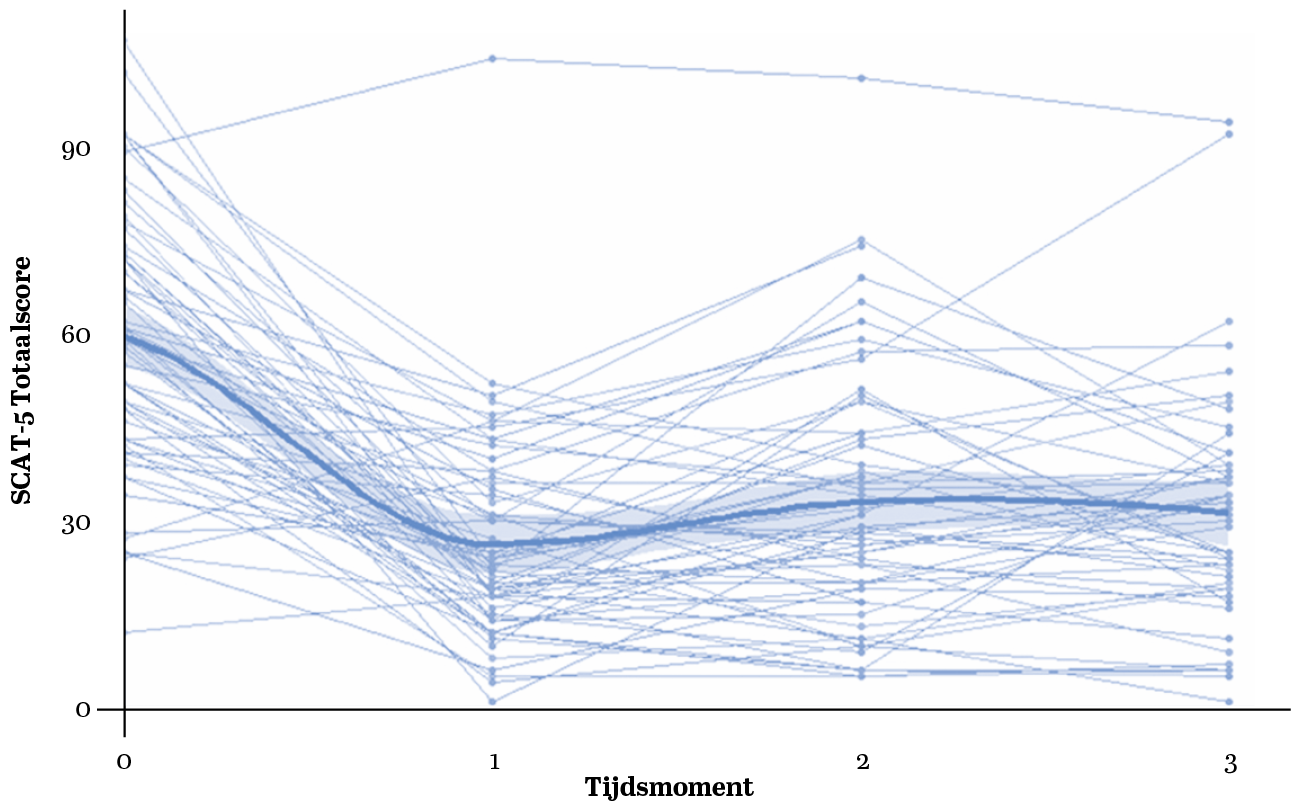
77% Improvement
A meaningful reduction was seen in 77% of the participants. In addition, there was a decrease in self-reported anxiety, depression, fatigue and sleep problems.
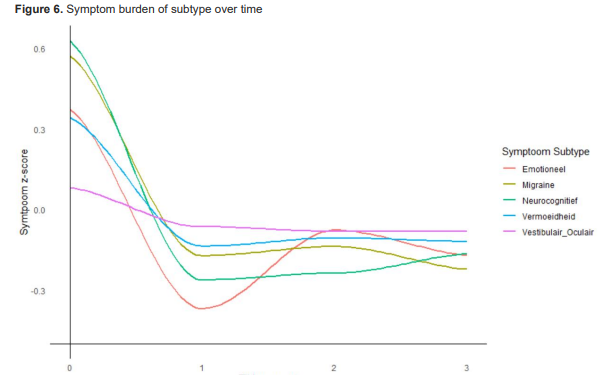
Symptom Subtype Improvement
Fatigue, Emotional, Migraine/Headache, vestibular, ocular. All show significant improvement after treatment.
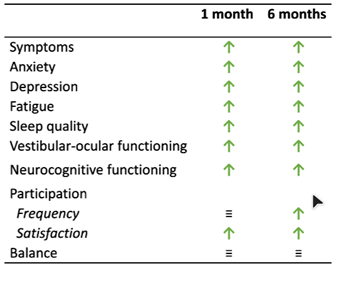
Treatment Durable Recovery
Improvements in patient outcomes at 1 and 6 months. Improvement continues after treatment as the brain continues to retrain.
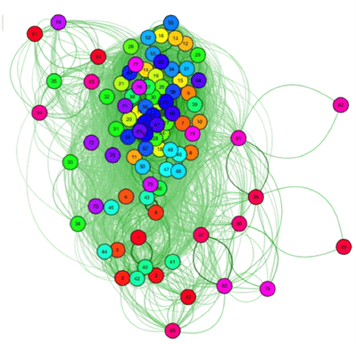
Functional Brain Changes
Patient recovery resulted in measurable differences and improvement in brain functional connectivity.
Doctors
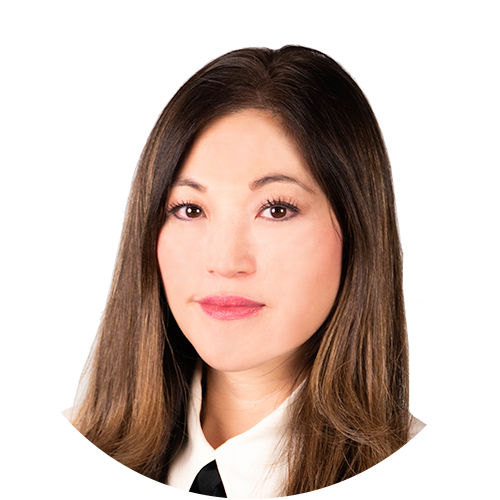
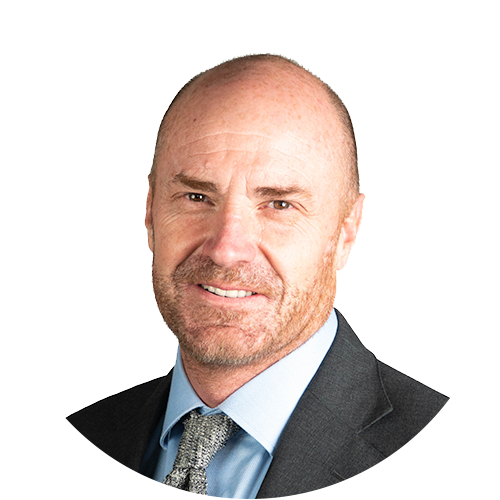


.png?width=250&height=75&name=Untitled%20(1).png)


Patient Testimonials
You deserve to heal and feel better.
You're tired of going from specialist to specialist and not seeing the improvements you want.
Now's the time to find out if a personalized approach customized to your actual brain scan delivered by a multidisciplinary team can treat the root causes of your symptoms so you can return to the life you want.
Answer 20 questions to tell us about your injury and find out if treatment could be right for you with a free patient consultation.
